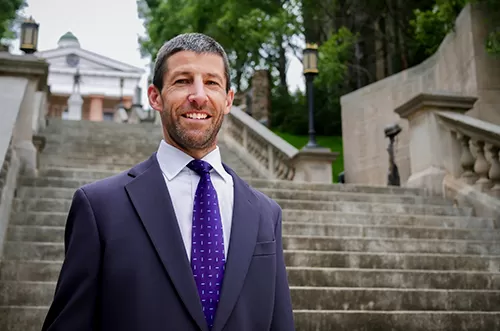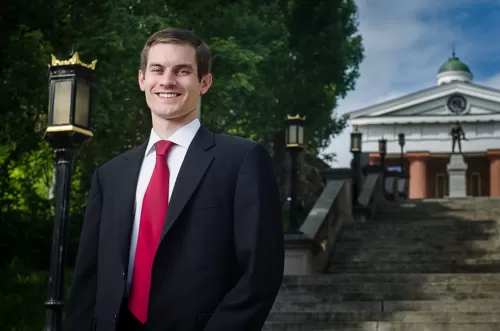Brian Wishneff & Assocs. LLC v. Delshah Dev., Inc., 2019 U.S. Dist. LEXIS 194427, 2019 WL 5865939 (W.D. Va. Nov. 8, 2019)
Brian Wishneff & Associates LLC (“Wishneff”) provides tax credit consulting services to real estate developers and has offices in Roanoke and Arlington, Virginia and each of its members are a Virginia resident. Delshah Development, Inc. (“Delshah”) is a real estate development corporation based in New York City and Michael Shah is its president.
On September 30, 2015, Wishneff and Delshah entered into a Delshah Development Tax Credit Agreement (the “Agreement”) for Wishneff to assist the developer in obtaining historic tax credits to redevelop certain New York properties. The Agreement included a New York choice-of-law clause, a jury trial waiver clause, and a requirement that notices to Wishneff be sent to its Roanoke office. Most of Wishneff’s consulting services were performed in Virginia and emails were sent to Wishneff’s server, located in Virginia, about the project. On January 22, 2019, Delshah sent written notice to Wishneff’s Roanoke and Arlington offices that Delshah was terminating the Agreement (the “Termination Letter”) because Wishneff failed to perform its duties as required by the Agreement and breached the contract and was not entitled to its fees.
On January 23, 2019, Delshah filed a complaint in New York state court against Wishneff, seeking monetary damages and declaratory relief. On February 22, 2019, Wishneff filed an action against Delshah in Federal Court in the Western District of Virginia, alleging that Delshah breached the agreement. On April 25, 2019, Delshah moved to dismiss the Virginia complaint on several grounds, including lack of personal jurisdiction. Following a hearing, Delshah submitted the complaint filed in New York state as a supplemental exhibit, showing that the complaint was filed on July 16, 2019.
A federal court based on Virginia’s long-arm statute can assert personal jurisdiction over a nonresident only if the nonresident defendant has certain minimum contacts with the forum state, such that the maintenance of the suit does not offend traditional notions of fair play and substantial justice. The due process requirements for asserting specific personal jurisdiction are: (1) the extent to which the defendant purposefully availed itself of the privilege of conducting activities in the forum state; (2) whether the plaintiff’s claims arise out of those activities; and (3) whether the exercise of personal jurisdiction is constitutionally reasonable. The court found that Wishneff met its burden of proving Delshah purposefully availed itself of the privilege of conducting activities in Virginia. Delshah initiated contact with Wishneff in Virginia.
As to the first requirement, in the business context courts may consider the following factors: (1) whether the defendant maintained offices or agents in the state; (2) whether the defendant maintained property in the state; (3) whether the defendant reached into the state to solicit or initiate business; (4) whether the defendant deliberately engaged in significant or long-term business activities in the state; (5) whether a choice of law clause selects the law of the state; (6) whether the defendant made in-person contact with a resident of the state regarding the business relationship; (7) whether the relevant contracts required performance of duties in the state; and (8) the nature, quality, and extent of the parties’ communications about the business being transacted. The parties negotiated the Agreement through communications between Delshah in New York and Wishneff in Virginia. Wishneff performed many of its consulting obligations from its offices in Virginia. The Agreement identified Wishneff as a Virginia limited liability company located in Roanoke and identified scopes of work to be performed from Wishneff’s Virginia offices. Finally, during the three-year relationship, the parties frequently exchanged phone calls and written communications related to the Agreement and a substantial number of calls were placed to Wishneff’s Virginia office and the Termination Letter was sent to Wishneff’s Virginia offices.
The court found that Wishneff satisfied the second requirement. As to the second requirement, a plaintiff’s claims can arise from activities directed at the forum where: (1) activity in the forum state is the genesis of the dispute; or (2) substantial correspondence and collaboration between the parties, one of which is based in the forum state, forms an important part of the claims. Here, Wishneff’s claims arose from Delshah’s forum related activities.
As to the third prong, the court concluded that the exercise of jurisdiction would comport with fair play and substantial justice. Factors relevant to this inquiry include: (1) the burden on the defendant of litigating in the forum; (2) the interest of the forum state in adjudicating the dispute; (3) the plaintiff’s interest in obtaining convenient and effective relief; (4) the shared interest of the states in obtaining efficient resolution of disputes; and (5) the interests of the states in furthering substantive social policies. Although less convenient, the burden on Delshah of litigating in Virginia was not so great as to make it unfair. When weighing the burden on Delshah against the other factors, the court held that the exercise of personal jurisdiction would be reasonable.
Finally, the court rejected Delshah’s argument for dismissal under the Colorado River abstention doctrine, which provides that a federal court may abstain from deciding non-frivolous non-declaratory claims in favor of a parallel state suit for reasons of wise judicial administration in exceptional circumstances. In deciding whether to abstain, courts weigh the following factors: (1) whether the subject matter of the litigation involves property where the first court may assume in rem jurisdiction to the exclusion of others; (2) whether the federal forum is an inconvenient one; (3) the desirability of avoiding piecemeal litigation; (4) the relevant order in which the courts obtain jurisdiction and the progress achieved in each action; (5) whether state law or federal law provides the rule of decision on the merits; and (6) the adequacy of the state proceeding to protect the parties’ rights. No real property was involved in the dispute. The second factor was neutral because the New York forum was inconvenient for Wishneff and the Virginia forum was inconvenient for Delshah. As to the third factor, the mere potential of conflict does not, without more, warrant staying the exercise of federal jurisdiction. The New York state action was not further along than the Virginia action. Finally, the mere fact that New York state law is implicated in the action does not weigh in favor of abstention.





